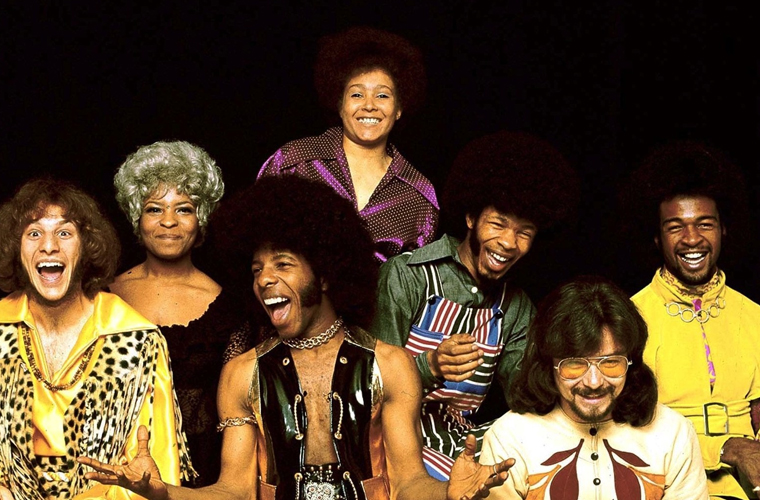Sly and the Family Stone was a groundbreaking American band that emerged in the late 1960s and became one of the most influential groups of their time. With their eclectic blend of funk, rock, soul, and psychedelia, they created a sound that was both innovative and timeless. But beyond their musical achievements, Sly and the Family Stone were also known for their social consciousness and their message of unity and inclusion.
The band was formed in San Francisco in 1966 by Sylvester Stewart, who was better known as Sly Stone. He was joined by his brother Freddie on guitar, his sister Rose on piano, and several other musicians from the Bay Area. Their first album, “A Whole New Thing,” was released in 1967 and featured a mix of funk, soul, and rock. But it was their second album, “Dance to the Music,” that really put them on the map.
The members were Sly Stone (original name Sylvester Stewart; b. March 15, 1943, Denton, Texas, U.S.), Freddie Stone (original name Freddie Stewart; b. June 5, 1946, Vallejo, California, U.S.), Rosie Stone (original name Rose Stewart; b. March 21, 1945, Vallejo, California, U.S.), Cynthia Robinson (b. January 12, 1944, Sacramento, California, U.S.—d. November 23, 2015, Carmichael, California), Jerry Martini (b. October 1, 1943, Boulder, Colorado, U.S.), Larry Graham (b. August 14, 1946, Beaumont, Texas, U.S.), and Greg Errico (b. September 1, 1946, San Francisco, California, U.S.). As a performer, songwriter, and social satirist, bandleader Sly Stone stood among the giants of rock.
“Dance to the Music” was released in 1968 and became a huge commercial success. The title track was a hit single that reached number eight on the Billboard Hot 100 chart, and the album itself reached number 142 on the Billboard 200 chart. The album featured the band’s signature sound, which combined funky rhythms, catchy melodies, and powerful vocals.
But what really set Sly and the Family Stone apart was their message of unity and inclusion. At a time when America was deeply divided by race and politics, the band’s music celebrated diversity and encouraged people to come together. Their songs were often political in nature, addressing issues such as racism, poverty, and war.
One of their most famous songs, “Everyday People,” was a powerful anthem of unity that became a hit single in 1968. The song’s lyrics celebrated diversity and urged people to accept each other for who they are:
“I am no better and neither are you
We are the same whatever we do
You love me, you hate me, you know me, and then
You can’t figure out the bag I’m in”
The song’s message resonated with audiences across America, and it became an anthem for the civil rights movement.
Sly and the Family Stone continued to release successful albums throughout the late 1960s and early 1970s. Their third album, “Life,” was released in 1968 and featured the hit single “M’Lady.” Their fourth album, “Stand!,” was released in 1969 and included some of their most famous songs, such as “Sing a Simple Song” and “I Want to Take You Higher.”
But despite their success, the band faced many challenges. Sly Stone struggled with drug addiction and erratic behavior, which often caused tension within the group. In addition, their music became more experimental and less commercially viable in the early 1970s, which led to a decline in popularity.
Sly and the Family Stone disbanded in 1975 after releasing their final album, “High on You.” But despite their relatively short career, they left a lasting impact on American music and culture. Their music inspired countless artists in the decades that followed, from Prince to Public Enemy to Outkast. And their message of unity and inclusion remains as relevant today as it did in the 1960s.
In recognition of their contributions to American music, Sly and the Family Stone were inducted into the Rock and Roll Hall of Fame in 1993. Their legacy continues to inspire new generations of musicians and fans who are drawn to their unique sound and powerful message.

